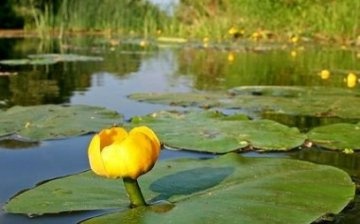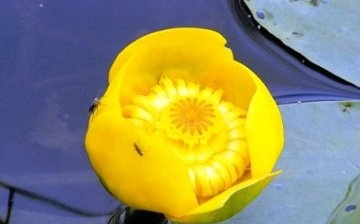Yellow capsule: a modest decoration of still water
The yellow pod is one of those plants that can be seen in quiet lake or river thickets. She loves clean, uncontaminated water, and therefore, in the city limits, the egg capsule is still a rarity. Although, if you are in small provincial towns in the summer to walk along the river bank, you will surely see yellow capsule heads sticking out of the water surrounded by dark green leaves.
This inhabitant of calm and clear waters is one of the most ancient plants on our planet. According to some studies, the history of the egg-capsule is already about 30 million years old! Over these millennia, the egg-capsule has apparently changed little, giving rise to a whole family of beautiful flowers, for example, water lilies.
The egg capsule is an aquatic plant with long roots extending from a horizontal fleshy rhizome. The leaves of the capsule have an elongated rounded shape. If they float on the surface of the water surface, then they are dense, dark green. And those leaves that grow in the water column have a translucent color.
The flower pod itself is not particularly beautiful. Its main advantage is its bright yellow color and beautiful shape of the fruit, which actually resembles a capsule. The flower of this aquatic plant is surrounded by five leaves. They are round, dense, as if leathery. Along the upper edge they have the same notch as the petals of the white water lily. But the pods themselves have a lot of petals, just like the stamens. They are in the middle of the flower and are much shorter than the sepals.
A feature of the egg capsule is that with the onset of evening, its flowers close, but do not go under the water, and remain on the surface on thick elastic stems sticking out of the water.
A capsule is used to decorate shaded water areas.







At one time, when there was a small pond at the dacha, it was the egg capsule that was one of the brightest spots on its surface. But alas, the pond is a very laborious element of the landscape and therefore for a couple of years now, it has not been (((